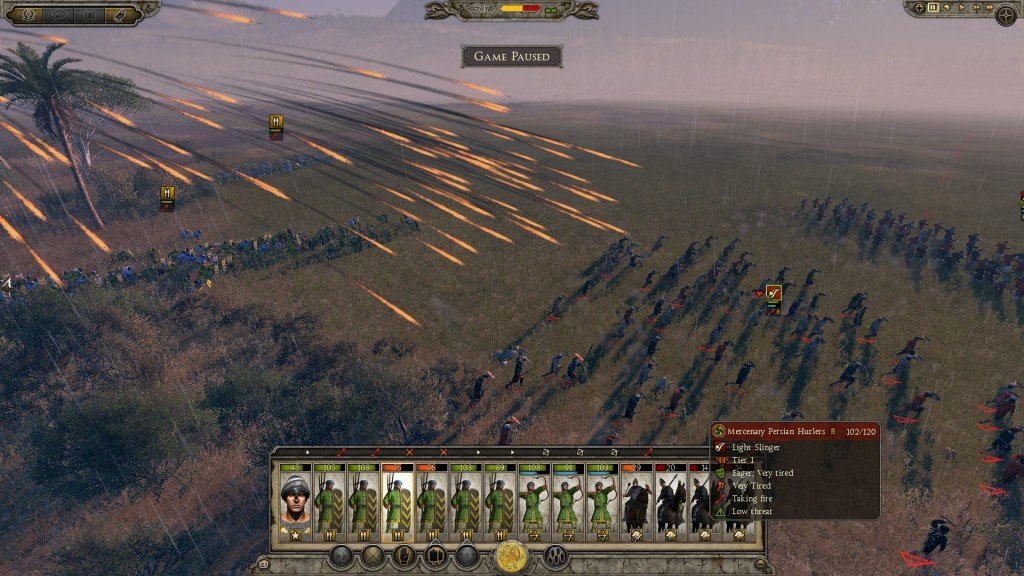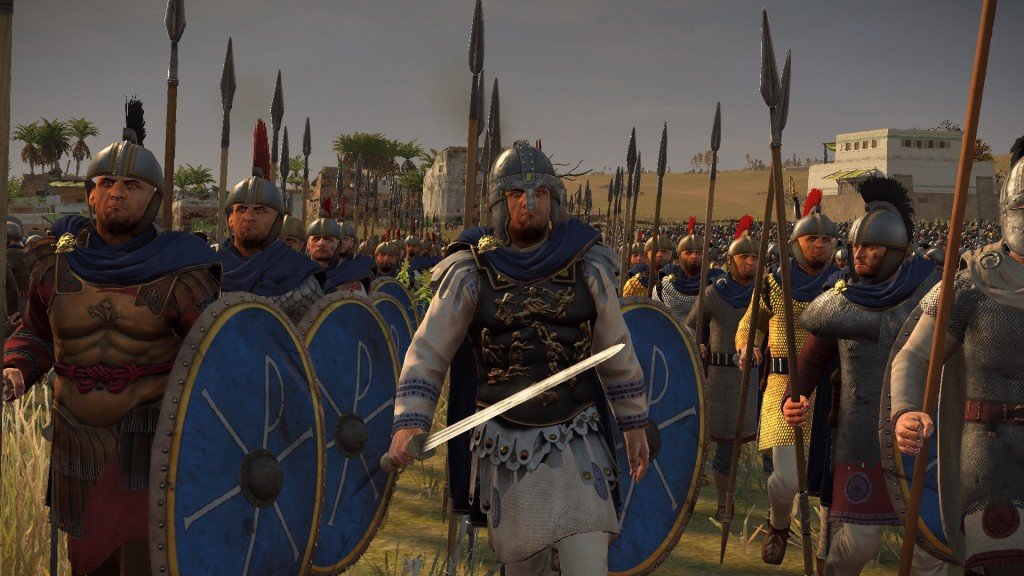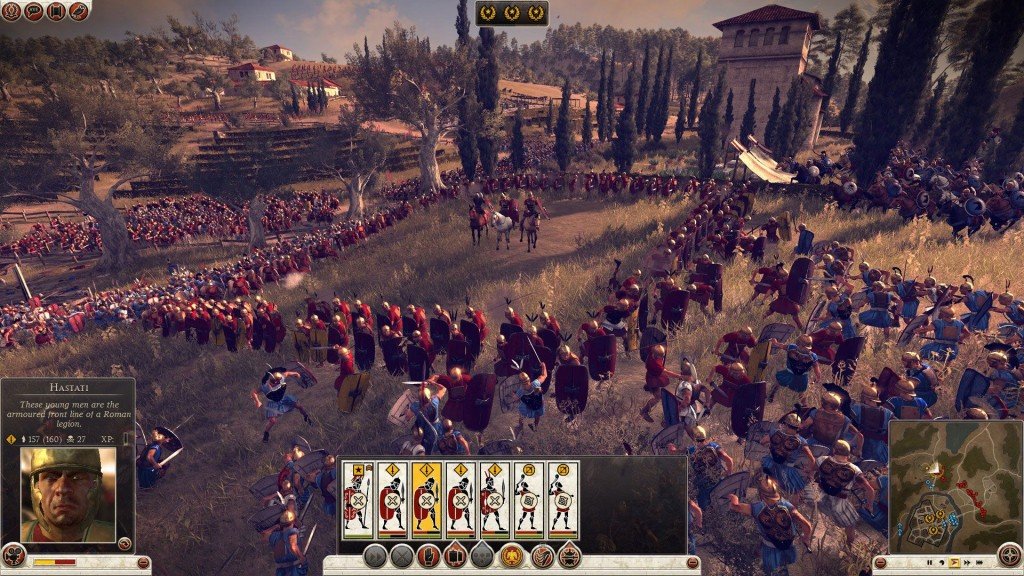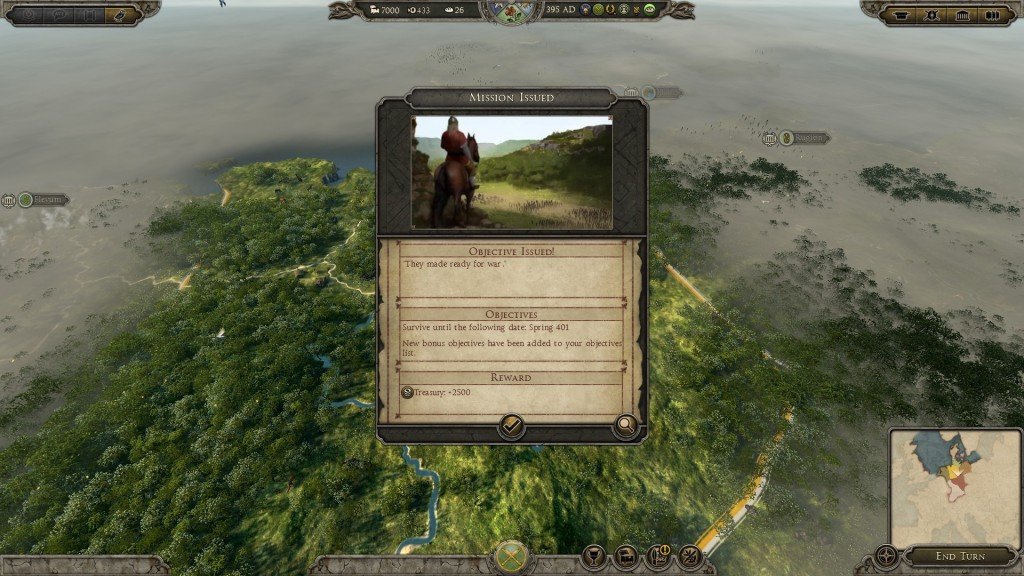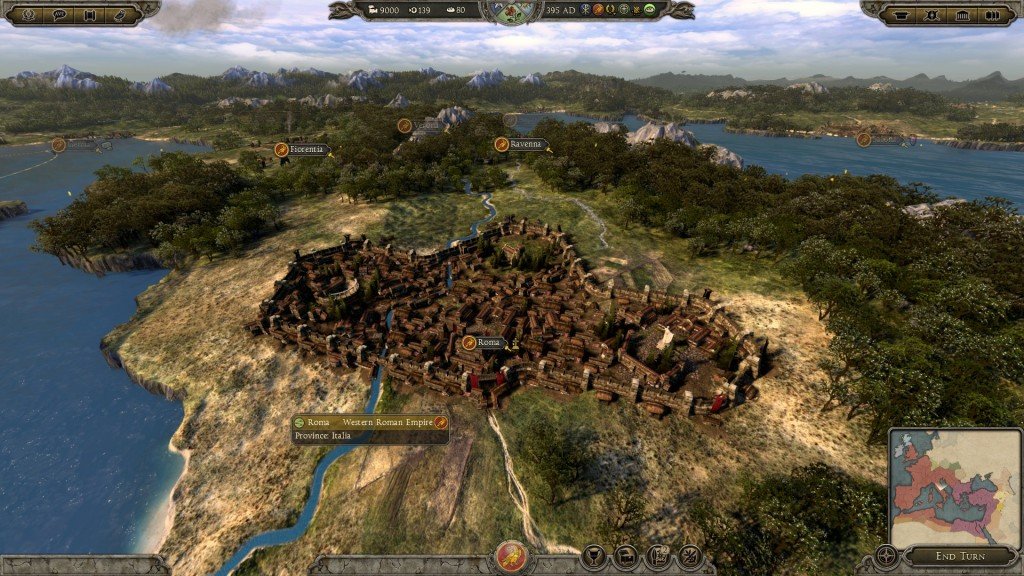For the past 15 years, the Total War franchise has been quenching the thirst of strategy gamers across the globe. Some of their games have strongly influenced strategy gaming as a whole and it is great to see The Creative Assembly back at the helm, doing what they do best; making great games. While Total War: Attila may not make non-strategy fans, strategy fans again, it is a solid effort that Sega and The Creative Assembly desperately needed. Total War: Rome 2 made a lot of changes that ultimately fell flat and caused a slew of technical issues that took a long time to fix, Attila benefits from that debug process and is much more polished this time around. If you wanted to know if it was safe to jump back into the deep end of strategy, we are happy to give you the all clear.
The story of Total War: Attila focuses on the period right around the fall of the Roman Empire. You get an extensive look at the campaign of Attila the Hun and all of his victories against the Romans. This game seems to tie the bow on the “Rome” franchise since you can play in just about any period during the reign of the Empire between Rome, Rome 2 and Attila. However, for as similar as you may think the story is to other Rome games, Attila places you in quite a different position than you have been in other games. In Attila, you aren’t given an empire to expand and manage, here you are given a tribe and you are in search of a piece of land to conquer and turn into an empire of your own. It is a subtle difference, but it makes all the difference in the world.
Playing as a nomadic tribe gives you a unique perspective into the lives of ancient tribes that lived the life you are simulating and it translates beautifully into this game. Here the elements around you are just as dangerous as any invading army will ever be. If you don’t push into fertile lands, you can freeze to death in the mountains. On the other hand, if you aren’t ready to fight, you’re entire tribe can be killed and it is game over. This push and pull of enemy forces and natural elements creates some rather dire situations where you weigh consequences of actions you may never have considered before and represents a paradigm shift for the Total War series. In previous games, you always had a home base. It was a place that could resupply your army and gain new technology to dispatch your foes. When you don’t start out with that safety net, it changes the game from conqueror to survivor.
While the way the story plays out has been improved, there are a number of changes to the actual game that made this a much easier game to manage and play. You may remember from Rome 2 the long bar full of icons which represented most of the actions you could take. It was a clunky system and just cluttered the screen with actions that you may never use to their intention. However, this time in Attila, the info panels are bigger and less clutter across the bottom of the screen. This makes viewing the map or even your family tree easier. You can then hide these panels and get more screen back. The whole information relay system looks and flows better which is already a vast improvement over Rome 2.
When playing Attila, you’ll quickly realize that this game is much more aggressive than anything that came out before it. Your neighbors and local roaming tribes tend to get in trouble with everyone else on the map. It seems there is always a battle to play out and the politics from these interactions is intense. It is ultimately a reflection of the times, the Roman empire was in decline and ready to split between east and west while the remnants of the old Persian Empire lay waiting to claim their old lands from the Eastern Romans. That chaotic nature is what moves the game forward and it is the main factor of what you have to deal with to be successful.
While this game sounds like a vast improvement over its predecessors, and for all intents and purposes; it is, there are still some issues with the game that prevent it from being perfect. For starters, there are some issues with the nomadic nature of the game. Everyone seems to be moving around and that fluidity doesn’t respect boundaries, even if you establish them through war. For instance, you can defeat and enemy on the battlefield, claim his land and push his people elsewhere. However, those same people can settle back into your lands which cause more issues for you internally than they would have posed to your armies in battle. It is like if during WWII, when the allies won the war against Germany, the allies gave Germany back its lands and just when peace was starting to emerge, the allied armies started to settle in German lands and spread revolutionary ideas among your populace. It isn’t realistic and it was frustrating to play out.
Diplomacy is also overly difficult and the AI controlling it feels lacking. You never know when the AI is going to accept a trade or a treaty which is fine, but when that trade or treaty benefits both parties, it doesn’t make sense why these types of arrangements would be rejected. Even if your trading partner desperately needs a resource that you have and you need a resource he has, your trade proposal could be rejected. It rarely makes sense and it is frustrating to deal with. This is something that seemed to carry over from the earlier games and while you could make excuses for the stupid AI then, it is harder and harder to do so today.
In a relatively disappointing lack of content, the Celtic faction does not have any distinct styling, units or personality. The Celts use Roman or Nordic units which couldn’t be further from the truth. While this may be a source of the game’s first downloadable content pack, it is disappointing that this was left in the final version of the game. If you are going to include a specific faction in the game, you should make sure that you do everything right and represent them in the same way you did with all the other factions.
While the game does have some smaller issues, the combat is still the main focus of the game and it is just as good as you’d expect. The pacing of the game has been improved and you’ll rarely feel like the battle is taking too long or is wrapping up too quickly. With the new raider units at your disposal, there are more options on the battlefield. You can capture towers or gates relatively quickly and you can even set fire to structures of strategic importance. This set fire ability changes the dynamic of the game and it really manages to mess with the defenders lines and opens new lanes of attack. Battle is what this game is about and it does it quite well.
In the end, Total War Attila has learned from the mistakes that were made in Rome 2. The battle system is tight, the atmosphere is great and it takes chances that ultimately pay off. Having to choose between hunger or war is a heavy decision and it makes you feel like you are commanding an army during that time period. Granted, not everything is perfect and there are still some lingering problems that reared their head in earlier games, they don’t break the game like other problems did for earlier games in the franchise. We did not encounter any game breaking bugs, glitches so feel free to play this game without worrying. Attila is a much cleaner, well thought out experience and it proves that it is the best game in the franchise to date. If you’ve been wanting to play a great Total War game, this is the one to play.
This review is based on a review code of the PC version of Total War: Attila developed by The Creative Assembly published by Sega
- Improved User Interface
- Interesting Story Angle
- Battle System is Great
- AI Can be Dumb at Times
- Some Incomplete Content

